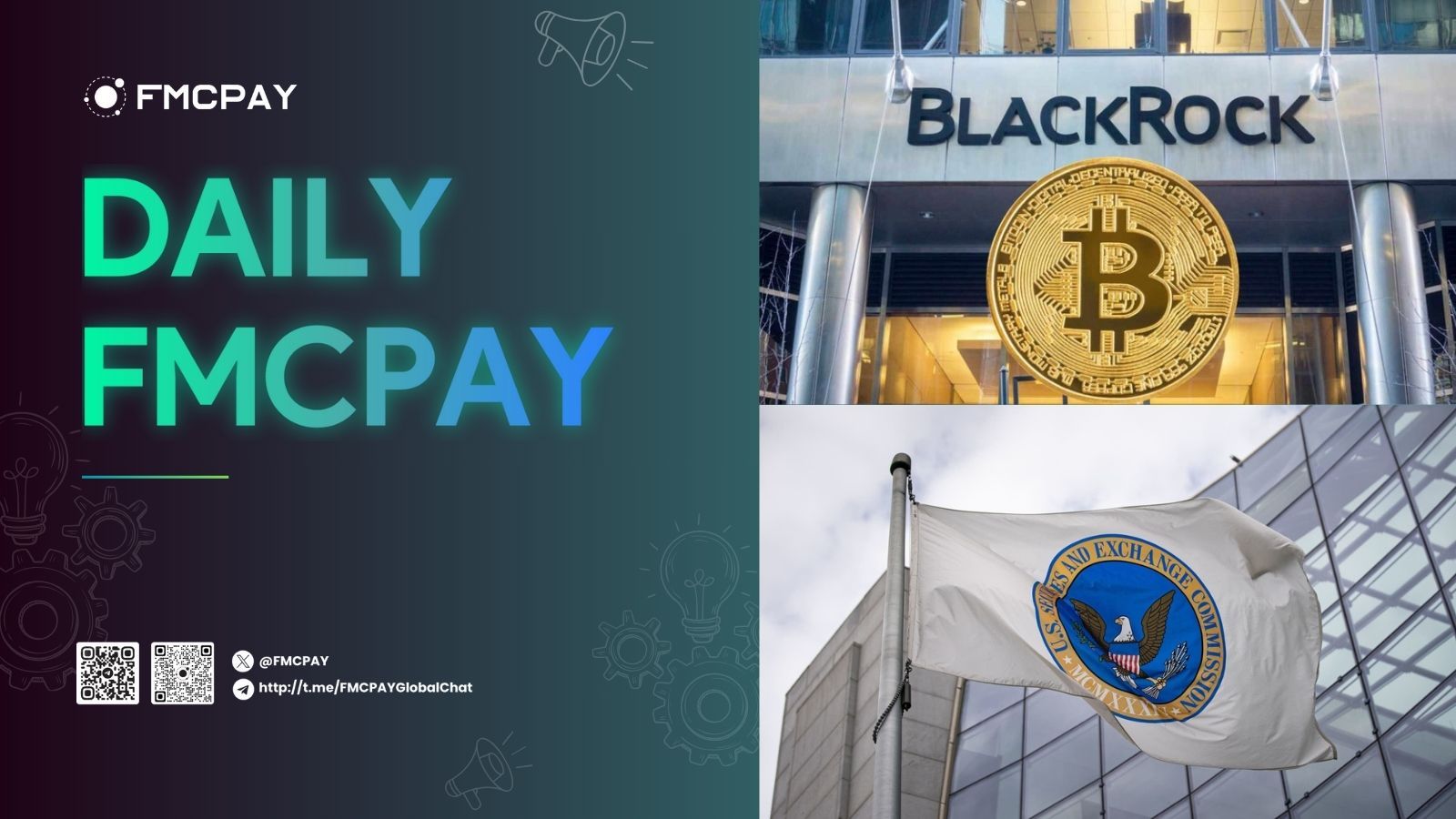BlackRock, the world’s largest asset management firm, has submitted a filing to the US Securities and Exchange Commission (SEC) to include Bitcoin Exchange Traded Funds (ETFs) in its Global Allocation Fund. This move underscores a significant pivot of BlackRock towards the integration of BTC, reflecting a broader acceptance of the cryptocurrency within mainstream investment portfolios.
Global Allocation Fund To Include Bitcoin
The filing outlines BlackRock’s intention to invest in Bitcoin ETFs that hold BTC directly, aiming to replicate the cryptocurrency’s market performance. Specifically, it mentions, “The Fund may acquire shares in exchange-traded products (‘ETPs’) that seek to reflect generally the performance of the price of Bitcoin by directly holding Bitcoin (‘Bitcoin ETPs’), including shares of a Bitcoin ETP sponsored by an affiliate of BlackRock.” Moreover, it specifies that any investments in Bitcoin ETPs will be restricted to those listed and traded on recognized national securities exchanges.
This strategic initiative is part of BlackRock’s broader investment strategy for its Global Allocation Fund, a mutual fund aiming to provide investors with global diversification across various assets, including equities, bonds, and potentially Bitcoin ETPs. With $17.8 billion in assets under management (AUM) and a year-to-date (ytd) return of 4.61% as of March 7, the Fund seeks to capitalize on global investment opportunities while managing risk and aiming for long-term capital growth and income.
Crypto analysts have highlighted the significance of BlackRock’s move, with MacroScope noting, “A new filing by BlackRock late this afternoon. As I’ve been saying, you’re going to see a lot of this in the coming months from Wall Street firms for their in-house investment funds.” This observation reflects a growing consensus that major institutional investors are increasingly entering the crypto space, which could drive further demand and adoption.

BlackRock Doubles Down On BTC
This filing by BlackRock follows a previous application to purchase spot Bitcoin ETFs for its Strategic Income Opportunities Fund, signaling a broader strategy by the asset manager to integrate BTC into its diverse range of investment products. With the BTC market showing ongoing strength, BlackRock’s entry into spot BTC ETFs could position its funds to benefit from the digital asset’s potential for high returns.
Interestingly, the Strategic Income Opportunities Fund is double the size of the Global Allocation Fund, boasting an AUM of $36.7 billion. However, the fund has exhibited relatively underperformance this year, with a modest 0.59% gain year-to-date.
The SEC’s decision on BlackRock’s requests is still pending, awaiting approval from the commission under Chairman Gary Gensler. Nevertheless, BlackRock’s initiative to incorporate BTC into its funds is an incredibly bullish sign, potentially opening the door for other asset managers to consider Bitcoin as a viable component of their diversified investment funds.
SEC Delays Decision on Options Trading on Spot Bitcoin ETFs
SEC has postponed its decision on approving options trading for spot Bitcoin exchange-traded funds (ETFs).
The SEC has extended the response deadline for both the Cboe Exchange and the Miami International Securities Exchange, which submitted bids to provide options on Bitcoin ETFs.
Additionally, the agency has delayed its decision on Nasdaq’s proposal to offer options on BlackRock’s iShares Bitcoin Trust (IBIT), stating the necessity for additional time to evaluate the request.

SEC Invokes Right to Defer the Decision
The filing deadline for Bitcoin ETF options was January 25, with the SEC’s initial decision deadline set for March 10. However, the SEC has opted to defer its decision, invoking a provision in U.S. securities laws that grants an additional 45 days.
This extends the SEC’s deadline to April 24 for reaching a final decision on options trading for Bitcoin ETFs. Options are derivative products offering traders leverage to make directional bets on the market.
For instance, a trader anticipating a rise in Bitcoin’s price can purchase a “call option” to buy 1 BTC at today’s price in a month, committing a smaller amount compared to buying 1 BTC outright. If Bitcoin’s price rises during that period, the trader can exercise the option, buying Bitcoin at a lower price and potentially selling it at a profit.
Conversely, if Bitcoin’s price falls, the trader may allow the option contract to expire, forfeiting the premium paid. Grayscale CEO Michael Sonnenshein has endorsed options for Bitcoin ETFs, noting their role in fostering a robust and healthy market.
Bitcoin ETF Options Will Attract Hedge Funds
Analysts, like Dave Nadig from VettaFi, anticipate that the introduction of Bitcoin ETF options will attract hedge fund players who were previously not involved in the crypto ecosystem, providing them with an opportunity to enter the market.
The SEC’s approval of ten spot Bitcoin ETFs on January 11 has already led to significant inflows of funds. Excluding Grayscale’s converted ETF, the nine new ETFs had amassed $25.87 billion in assets under management as of March 6, according to data from BitMEX Research.

In addition to options trading, the SEC is also assessing seven spot Ether ETFs, with speculation among analysts that the agency may wait until May 23 to approve them all, coinciding with the deadline for VanEck’s application.
The SEC is also considering multiple leveraged Bitcoin ETFs, including filings from asset manager Direxion for five inverse and long spot Bitcoin ETFs, ProShares’ five leveraged Bitcoin funds, and REX Shares’ six leveraged ETFs.
Recently, SEC Commissioner Hester Peirce highlighted that the regulatory agency is primarily focused on enforcement actions in its approach to regulating cryptocurrencies. She emphasized that one of the main challenges within the cryptocurrency industry is the SEC’s reliance on enforcement actions rather than establishing clear regulatory guidelines beforehand.
Peirce argued that having clear rules in place would be more effective in distinguishing between bad and good behavior within the industry, rather than relying solely on enforcement actions after the fact.

